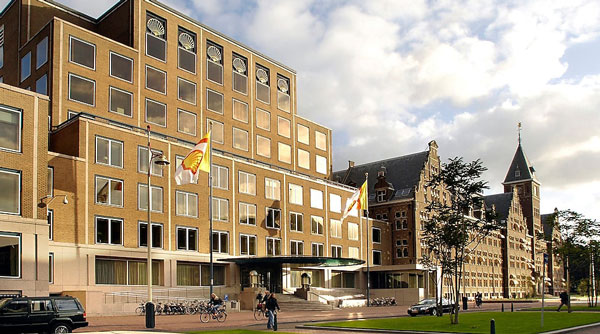
The Hague, Netherlands | AFP | Long criticized at home and abroad for being a haven for giant corporations, the Netherlands announced fresh measures Tuesday to crack down on tax breaks for multinationals.
Business-minded Dutch Prime Minister Mark Rutte, leading a fragile coalition, is backing a proposal originally tabled by opposition and green parties to change the law on how profits are taxed.
The new tax plans are part of the Dutch government’s 2020 budget, presented by Finance Minister Wopke Hoekstra at the opening of parliament in The Hague.
Government specifically targeted a law currently allowing multinationals to offset any losses that they make in other countries against their earnings in the Netherlands.
While the Netherlands is not formally on the EU’s “blacklist” of tax havens, the kingdom is a paradise for major companies like electronics giant Philips, paint titan AkzoNobel and Shell.
These companies take advantage of the foreign losses rule to pay virtually no corporate tax in the Netherlands, despite the fact that Anglo-Dutch oil giant Shell for example makes around a billion euros in profit each year in the Netherlands.
The leader of the Dutch party GroenLinks (Green-Left) Jesse Klaver, also backed the new proposal. “If a baker has to pay taxes on the profits he makes, Shell must do the same,” he said.
– ‘Black hole’ –
Stung by criticism from the EU, liberal leader Rutte has made previous pledges to tighten tax breaks for foreign firms.
In 2018 top European Union official Pierre Moscovici lumped the Netherlands along with Ireland, Luxembourg, Malta and Cyprus as “black holes” for tax.
But the pressure is now coming from inside as well as outside, as Rutte navigates his way through a tenth year in power with a coalition that only has a one-seat majority.
It is a major policy change for Rutte, a former employee for Anglo-Dutch consumer giant Unilever, who was forced to backtrack last year on a controversial tax break aimed at luring foreign firms to the Netherlands.
Rutte’s government has also faced protests from so-called “Yellow Vest” demonstrators. But this was not on the scale of those in France, and in his typically low-key style, the bike-riding premier met their leaders for a chat.
Now, the Netherlands will limit to three years the period during which businesses can declare their foreign losses against their domestic tax obligations.
Shell, in particular, will from 2021 have to pay 250 million euros on its Dutch business, according to estimates in Dutch media.
Shell declined to comment directly but said it was following developments “with great interest”.
Philips, which has recently tilted its business from consumer electronics to medical and health, admitted that it does not currently pay taxes on its Dutch businesses.
“Over the last 10 years we have paid 150 million euros in tax, and it is true that we are not currently doing so because of incidental losses,” Philips head of media Steve Klink told AFP.
But he insisted that this was a “temporary situation and not a structural one.
“We expect to pay tax again from 2021, more than 100 million euros a year, independent of the legal changes,” he said, adding that it already pays 500 million a year in taxes on salaries and dividends.
– ‘Gone too far’ –
The Netherlands has had to strike a difficult balance in retaining its business-friendly image, particularly as it aims to hoover up investment lost by Britain due to its looming departure from the EU.
“But since this allows multinationals to pay no (corporate) tax, we realise that we have gone too far,” said Roel Beetsma, an economist at Amsterdam University.
“The government is responding to growing accusations from society that it is unjust.”
Beetsma added that “international pressure” also played a role, particularly from the European Commission.
Brussels has launched a series of probes into Dutch tax deals with companies including Nike, Starbucks and Ikea.
“It looks bad when a big group like Shell, which made 1.3 billion euros profit in 2018 (in the Netherlands), pays no corporate tax here,” said Arnold Merkies, a former socialist MP who now heads the Dutch group Tax Justice Network.
But he warned against getting too carried away.
“The government is very concerned with burnishing its image. It announces things but nothing is for sure — we have to see whether these companies will really pay this tax.”
 The Independent Uganda: You get the Truth we Pay the Price
The Independent Uganda: You get the Truth we Pay the Price


